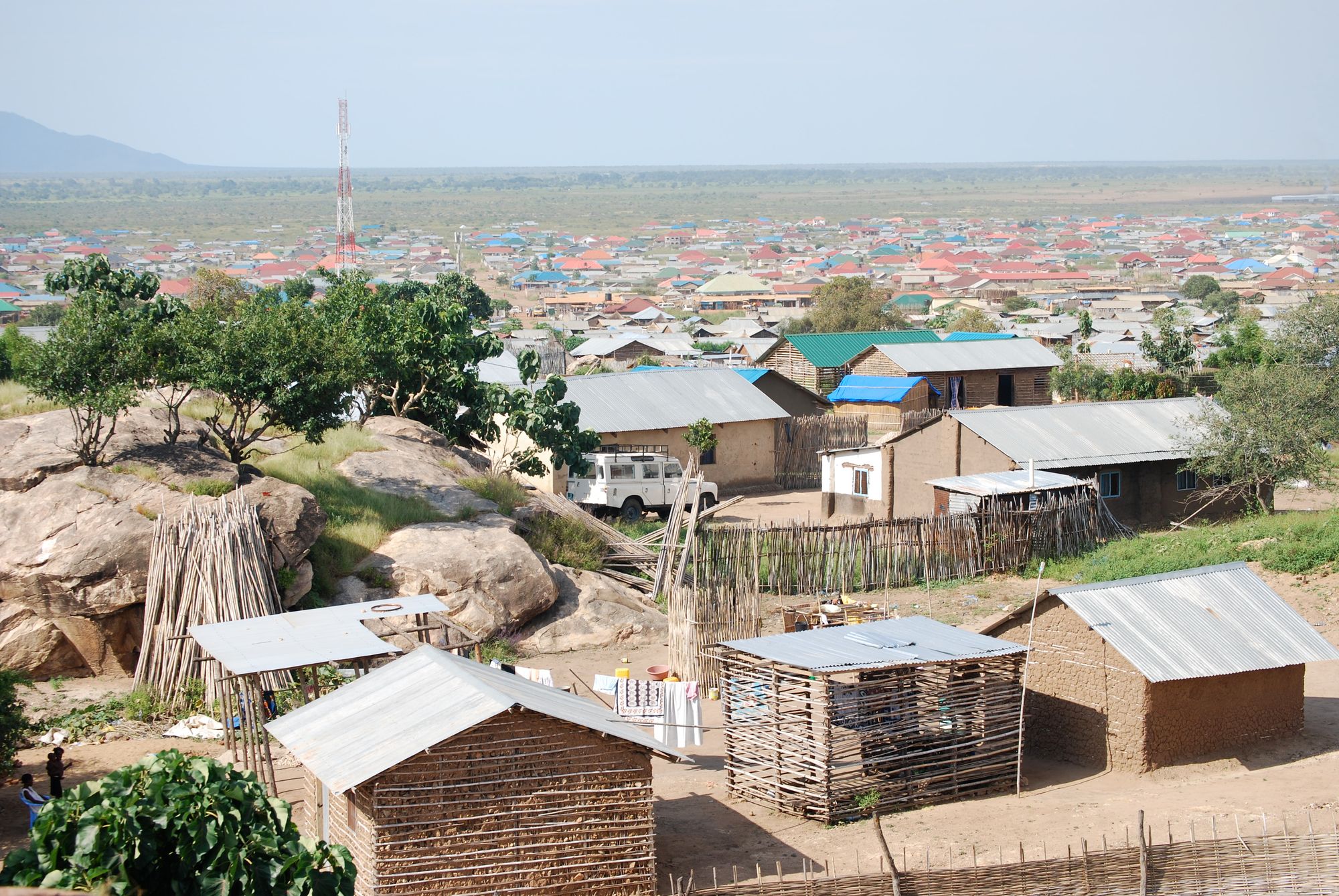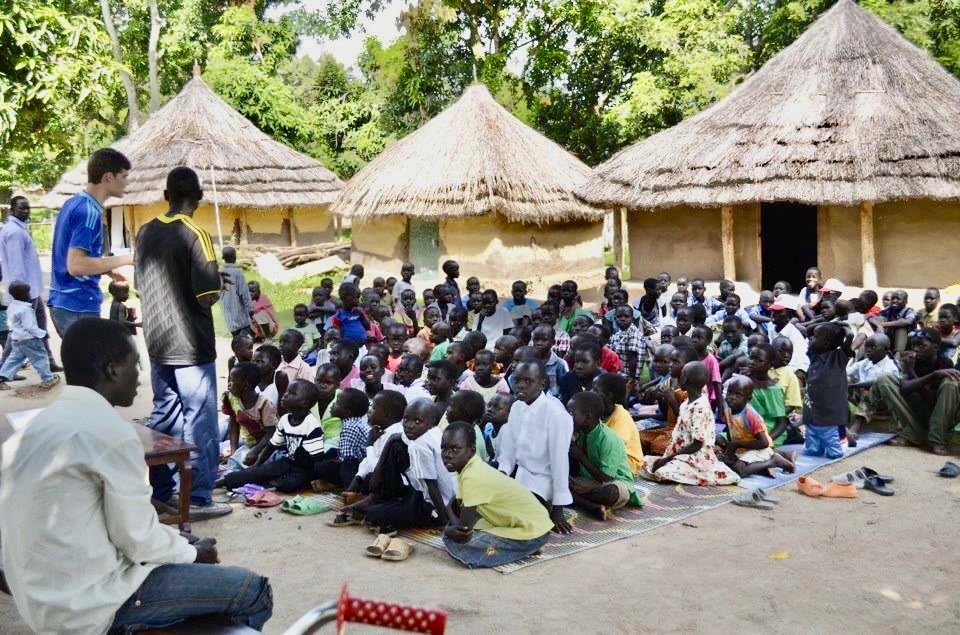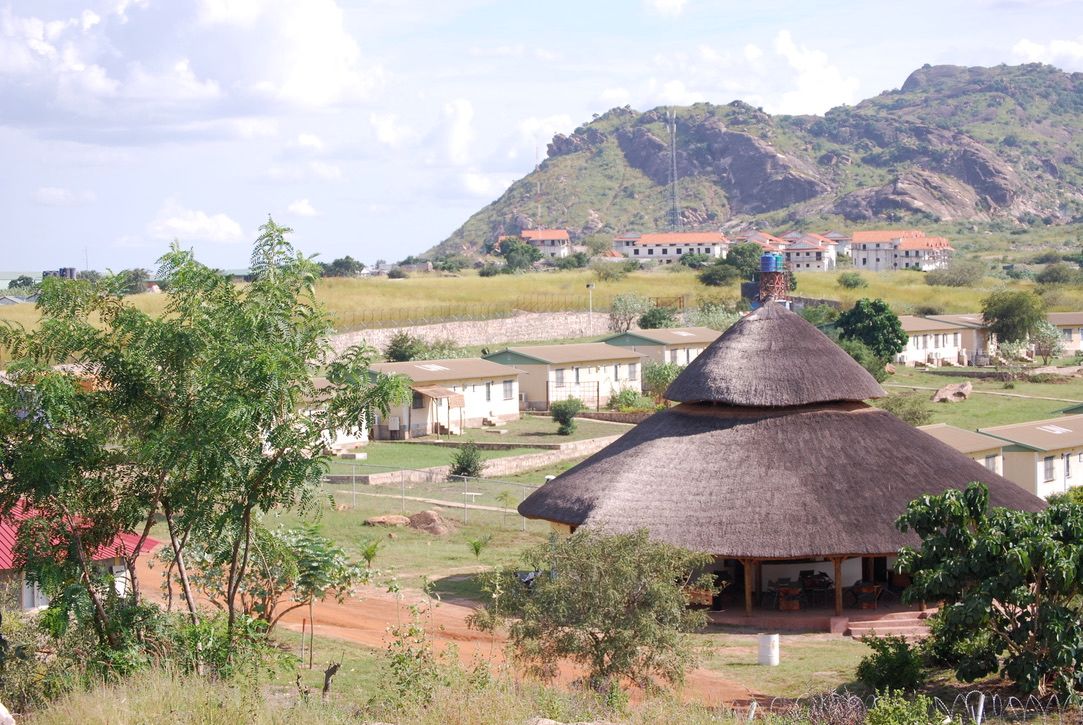Landmines

My senior year of high school was a whirlwind, not only because I was about to embark on a journey to a foreign USA for college, but also because I got the opportunity to travel with my dad (Philip Hunt) to the newest nation on earth—South Sudan.
Smoke, clear skies, small towns called cities, small villages called towns, cold water showers, chess on a dusty street, barely any infrastructure, 50 years civil war—South Sudan.

There are a few analogies the trip brings to mind that apply to our desire to head to Zambia end of June 2024.
The most deadly sins are the hidden ones.
When we first arrived at the airport in Juba, we walked across the cracked tarmac to a large shack that is the distant equivalent of an airport terminal. There we stood in the chaotic building as the airport security opened all of our bags, dumped the contents, ruffled through them, put them back in our bags, and put a big white "X" with chalk on the bags.
South Sudan was and continues to be a country with open hostilities and war with the northern Sudan. How quickly we would have been detained, deported, or worse if we had tried to hide something illegal or even suspicious in our bags.
24 The sins of some are obvious, reaching the place of judgment ahead of them; the sins of others trail behind them. 1 Tim 5:24
Our success anywhere, but especially in Zambia, depends on the Spirit keeping our hearts ready and eager to bring sinful thoughts, attitudes, and behaviors into the light of the gospel. We should not smuggle unrepented-of-sin across the Zambian border, because we realize that the kind of sin that will disqualify us for ministry is the sin that is left hidden in the false bottom of our bags. As Paul says in 1 Timothy, the fruit of hidden sinful habits always, eventually becomes visible.
The path not taken has landmines.
After spending a few days in the capital city of South Sudan—Juba—we hired Mohammed to drive us to Kajo Keji to speak with various Christian pastors eager for CABU to send teachers to equip them for ministry. Fifty years of civil war has left a generation of youth in the country who know little of the Scripture.
So, I folded my 17 year old, 6' 2'' body into a space about the size of a dishwasher in the back of the Jeep next to the bags. Finally, after what felt like an age, we stopped to stretch and satisfy the call of nature. What was impossible to miss were the large signs by the side of the road—DANGER, LAND MINES—an icon of a disintegrating person supplied on the sign to help us grasp the picture. Stepping off the road into the bush to relieve ourselves now brought with it the potential consequence of losing our lives.
Our choice to move to Zambia must be accompanied by humility if we are to remain useful for the Lord there long-term. Those who have gone before us have painstakingly put up warning signs and have paid the price for their own mistakes. It would be foolish of us to arrive with untested, idealistic programs and plans and potentially do harm to the churches in Zambia. Instead, we must take the low seat as servants under local pastors and begin the slow, deliberate process of setting the relational foundation for long-term ministry.
The Lord does not need us, he chooses us.
God does not stand in heaven wringing his hands looking for love. No, he does not depend on his creation—but, it does delight him to display his kindness to all his creatures. Connected to this, he does not need his creatures to do things for him, he makes new creatures for his glorious purposes:
10 For we are God’s handiwork, created in Christ Jesus to do good works, which God prepared in advance for us to do. Eph 2:10
We arrived at a village just across the border from Etheopia on the eastern side of South Sudan. There I was struck by the simple hospitality of our South Sudanese friends—they did not know us from Adam, but they gave us warm food, a place to sleep in their house, and treated us warmly. The next day my dad had the opportunity to speak to a local church and I was asked to teach to the kids. How inadequate I felt speaking to these kids through an interpreter!

Our ministry in Zambia must be marked by a recognition that we are merely broken vessels filled with the glorious treasure—the gospel.
7 But we have this treasure in jars of clay to show that this all-surpassing power is from God and not from us. 2 Cor. 4:7
Conclusion
God has his people in Zambia and in South Sudan. When my family visited Zambia this past July I had the privilege of meeting Alfred. Alfred plans to return to South Sudan where Emmanuel has already gone to plant a church. The amazing thing—the churches in Zambia sent Emmanuel as a missionary to South Sudan. This lights a fire under me to get to Zambia to help train more men like Alfred and play a part sending them to spread the gospel to the lost and forgotten villages of Africa.
Pray for us to avoid spiritual landmines so that we can be profitable servants of our Lord Jesus Christ.

